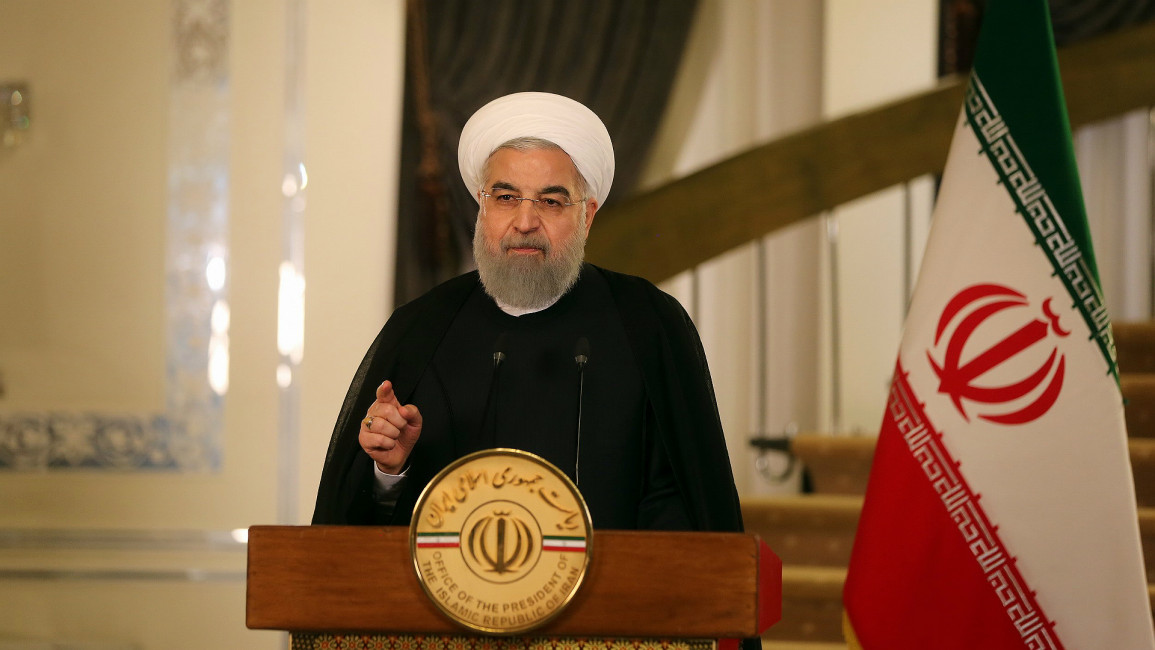Iran's president describes Arab League as "worn-out and ineffective" body
In a televised speech, Rouhani described the regional organisation of the Arab countries as "old, worn-out, exhausted and ineffective."
The comments come against the backdrop of an emergency Arab League meeting called for by Riyadh following an attempted missile strike into Saudi Arabia launched by Houthi rebels in Yemen. Saudi Arabia accused Iran, and its ally Hizballah of distributing ballistic missiles to the rebels, a charge they deny.
Rouhani called the remarks made by the Arab League expressing regret over the fired missiles as "unfortunate".
Hizballah's secretary-general, Hasan Nasrallah, also responded to Riyadh’s accusations on Monday, slamming them for their military activities in Yemen, which has led to thousands of deaths and the outbreak of cholera following the blockade imposed by Saudi Arabia.
"Have we reached a time where we witness millions dying from cholera and the majority remain silent?" Nasrallah asked, questioning why the Arab League was "silent" and adamant in its refusal to stand up to Saudi Arabia.
Yemen battles one of the world's worst outbreaks of cholera, with nearly one million people infected. Some 2,200 people have died from the disease.
Saudi Arabia and its allies intervened in neighbouring Yemen in March 2015 to push back the rebels who control the capital Sanaa, in an attempt to restore the government of Abd Rabbo Mansour Hadi to power.
The UN has listed Yemen as the world's number one humanitarian crisis, with 17 million people in need of food, seven million of whom are at risk of famine.
Since 2014, the war in Yemen has killed at least 10,000 civilians.



